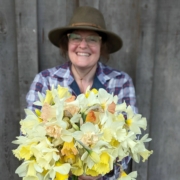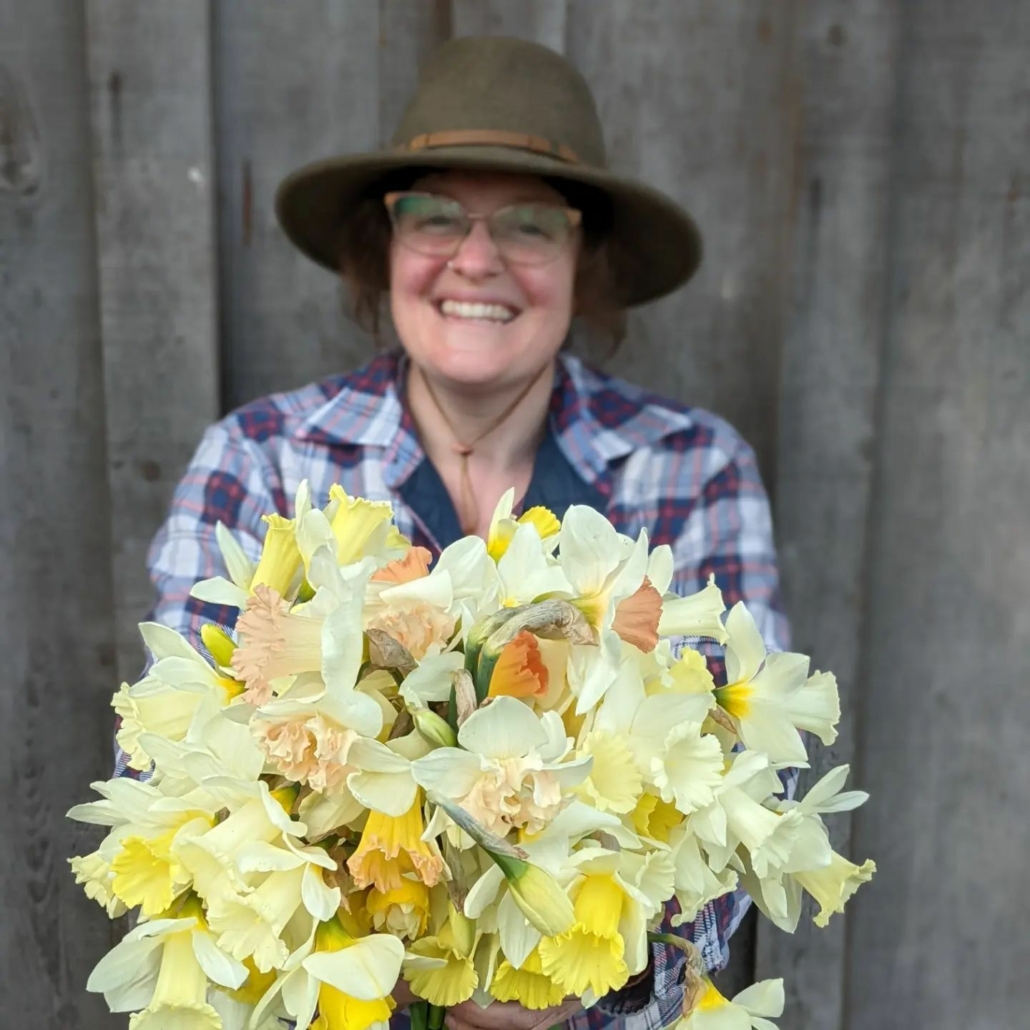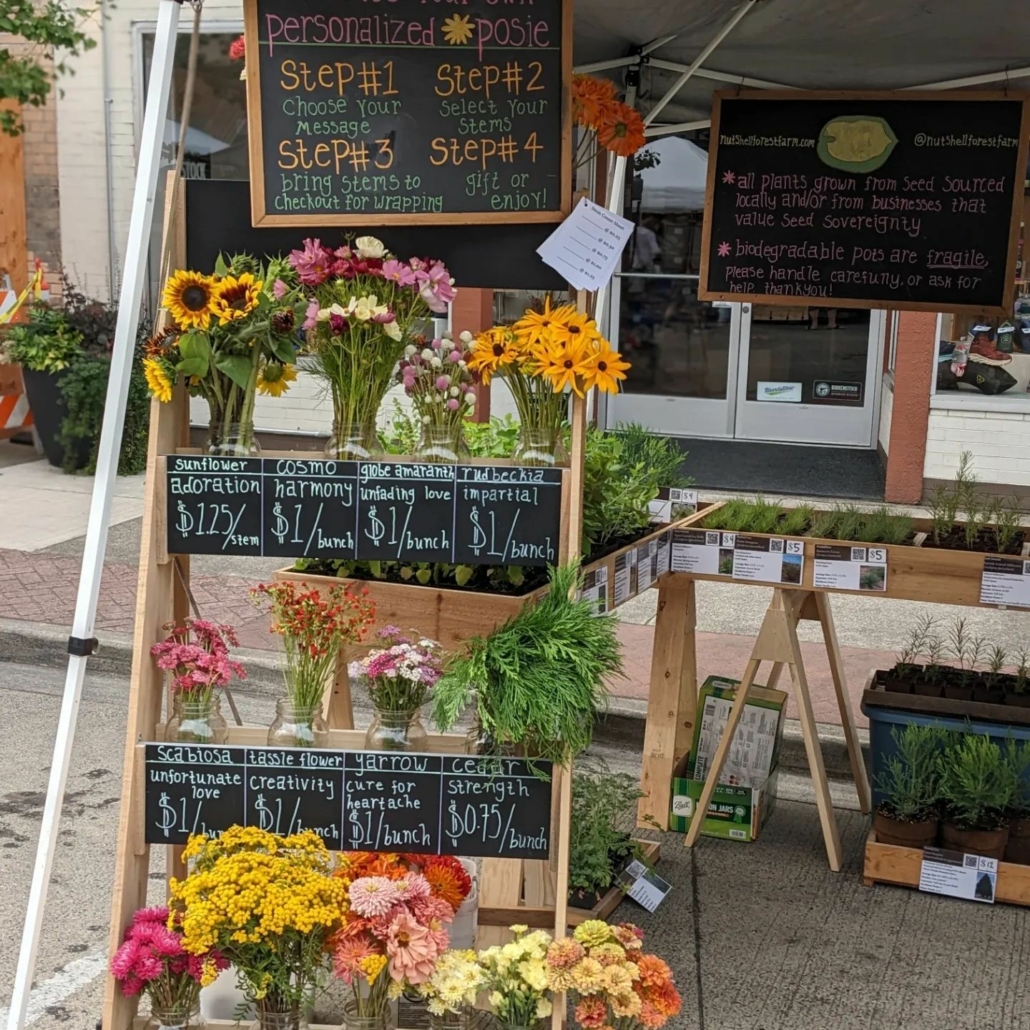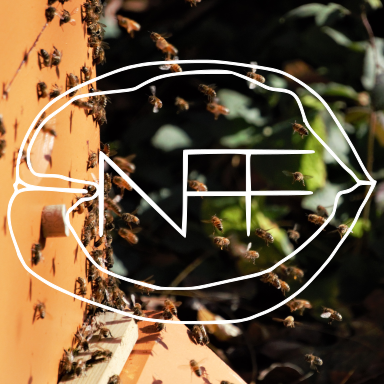Let’s Hear it from a Local Grower and HFC Owner
Recently, we caught up with HFC owner and Nutshell Forest Farm owner, Rose Potter.
We wanted to know what it’s like to own and operate a small farm business in our region and how that relates to a food co-op. Rose was kind enough to help shed some light by sharing her perspectives and experience with us. We can’t wait to be a store that will offer Rose’s flowers, honey, and other products year-round. Until then, enjoy what she can teach and reinforce for us.
HFC: Please tie together what sustainability means to a small grower and, ultimately, to HFC.
Rose P: As a small grower, sustainability means cultivating crops that make sense for our region.
We work with our local ecology to make the most of seasonal rainfall and temperate, dry summers by using techniques such as dry-farming, incorporating pollinator and habitat hedgerows, intercropping annuals amongst woody perennials, and maybe most importantly, selecting site-specific species/varieties. Growing the right plant in the right place helps us keep our growing practices efficient, reduces our water use, and makes crops more adaptable to a changing climate. But sustainability really begins before the plant is in the ground. We focus on sourcing seed from local growers or harvesting from our own plants, that practice helps to ensure that the crop is adapted to our farm’s soil and climate. We also make a point to buy from growers that value seed sovereignty, which is the farmer’s right to breed and exchange diverse, open-source seeds that can be saved, and are not patented, genetically modified, or owned by major seed companies.
I’ve been a part of the Hillsboro Food Co-op since the beginning because we share a fundamental belief that our community deserves access to the best possible food. Moreover, we can make it happen while still being good stewards of the land, valuing sustainable practices, and investing in our own backyard.
HFC: Please talk about how your work as a small, local, sustainable grower affects the local community AND the larger global community.
Rose P: I was born and raised in rural Hillsboro, and I feel exceptionally lucky to have found a path to farming. Since 2015, I’ve been working to bring new life to farmland that had been fallow for more than 40 years. It’s a dream I’ve had for as long as I can remember. Like so many farmers, I feel called to share the bounty of the land and a duty to keep it healthy for future generations. Real food, grown thoughtfully shouldn’t be for the privileged few who can afford it. By investing in our community, we can help build better access for everyone and preserve the beautiful city we live in.
HFC: Please share the way(s) you envision a local food co-op impacting your livelihood and quality of life.
Rose P: As a farmer, a local (food) co-op would be a venue for us to distribute our goods to the community on a regular basis. It would provide a more predictable revenue source, meaning we can make investments toward the future of our farm. It would also help us forge stronger connections to the local market and grow for the desires of our specific and diverse community. As a consumer, a (food) co-op would give my family access to a broader range of local goods so that we can support the farmers, producers, and artisans that we call neighbors. And, of course, reducing our energy footprint and buying locally is an easy way to make an impact on our community and the planet.






